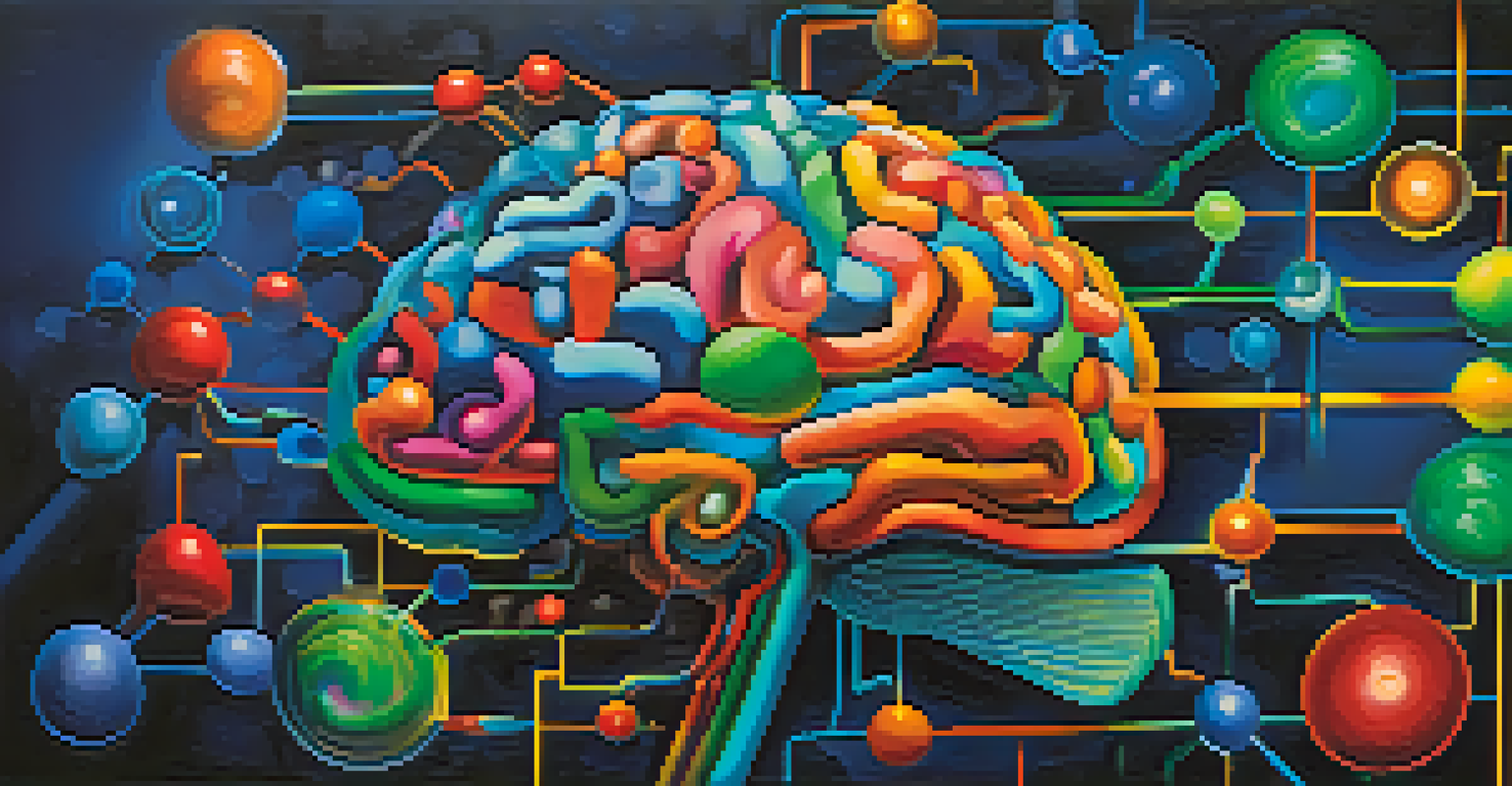Therapeutic Use of MDMA: Revolutionizing PTSD Care

Understanding PTSD and Its Impact on Lives
Post-Traumatic Stress Disorder (PTSD) is a mental health condition triggered by experiencing or witnessing a traumatic event. It can manifest through flashbacks, severe anxiety, and uncontrollable thoughts about the event. For many, these symptoms disrupt daily life, making simple tasks feel insurmountable and relationships strained.
Trauma is a fact of life. It does not, however, have to be a life sentence.
The journey of living with PTSD varies greatly among individuals; some may find ways to cope, while others struggle significantly. Traditional treatments, including therapy and medication, can be effective, yet they often leave many patients seeking additional relief. This ongoing search for effective solutions has led researchers to explore alternative therapies, including the use of MDMA.
Related Resource
Understanding the roots and effects of PTSD is crucial, as it highlights the need for innovative treatments. By exploring new approaches like MDMA therapy, we can pave the way for more effective care and support for those affected by this challenging condition.
What is MDMA and Its Historical Context
MDMA, also known as 'Ecstasy' or 'Molly,' is a psychoactive substance that alters mood and perception. Initially synthesized in the early 20th century, it gained popularity in the 1980s as a recreational drug. However, the growing body of research has revealed its potential therapeutic benefits, particularly for PTSD patients.

The journey of MDMA from the dance floor to the therapy room is fascinating. Researchers began to uncover how the substance could promote emotional openness and empathy, making it a unique tool in therapeutic settings. This shift has sparked a new interest in understanding how MDMA can serve as a catalyst for healing trauma.
PTSD Affects Daily Life Deeply
Post-Traumatic Stress Disorder (PTSD) disrupts daily life, leading to severe anxiety and strained relationships.
Today, MDMA is being revisited not just as a party drug but as a potential game-changer in mental health care. Its historical context emphasizes the importance of reevaluating substances that have been misunderstood, showcasing how perceptions can evolve through research and clinical experience.
How MDMA Works in the Brain During Therapy
MDMA functions by increasing the release of neurotransmitters like serotonin, dopamine, and norepinephrine in the brain. This surge creates a sense of emotional warmth and connection, which can help patients confront painful memories in a supportive environment. The neurochemical effects of MDMA allow individuals to revisit traumatic experiences with reduced fear and anxiety.
The greatest discovery of my generation is that a human being can alter his life by altering his attitude.
During therapy sessions, MDMA encourages open dialogue between patients and therapists, fostering a trusting relationship. This bond is crucial, as it creates a safe space for patients to explore their feelings and memories deeply. The experience often leads to breakthroughs that traditional therapies may not achieve, highlighting the unique role of MDMA in the therapeutic process.
Related Resource
Understanding how MDMA works on a biochemical level sheds light on its therapeutic potential. This knowledge empowers both patients and practitioners, providing a clearer picture of how the substance can aid in the healing journey from PTSD.
Clinical Trials: Evidence Supporting MDMA Therapy
Recent clinical trials have shown promising results in using MDMA as a treatment for PTSD. In one study conducted by MAPS, participants who underwent MDMA-assisted therapy reported significant reductions in PTSD symptoms compared to those who received traditional therapy alone. These findings illustrate how MDMA can enhance therapeutic outcomes.
The design of these trials often includes a combination of counseling and MDMA administration, ensuring patients receive comprehensive support. This approach not only addresses the symptoms of PTSD but also fosters emotional resilience. As more research emerges, the evidence supporting MDMA therapy continues to grow, instilling hope for those in need.
MDMA Shows Promise in Therapy
Recent clinical trials indicate that MDMA-assisted therapy can significantly reduce PTSD symptoms and enhance emotional resilience.
The implications of these trials extend beyond just numbers; they represent real lives being transformed. By highlighting the potential of MDMA therapy, we open doors for future research and improved treatment options for PTSD patients.
The Experience of MDMA-Assisted Therapy
MDMA-assisted therapy sessions typically involve a trained therapist guiding patients through their experiences. Patients often describe the sessions as deeply emotional, with feelings of safety and connection allowing them to confront their traumas. This unique therapeutic setting is designed to enhance vulnerability, encouraging healing in a way that traditional therapies may not facilitate.
During these sessions, patients can revisit traumatic memories while feeling supported and understood, which can lead to profound insights. Many report feeling a sense of clarity and emotional release, as the MDMA helps to dissolve the barriers built by fear and anxiety. This therapeutic experience can be life-changing, often leading to significant improvements in mental health.
Related Resource
The MDMA experience is not just about the drug; it’s about the relationship between the patient and therapist. This dynamic is vital, as it cultivates trust and safety, making the healing journey more accessible and effective.
Potential Risks and Considerations of MDMA Use
While the therapeutic use of MDMA shows great promise, it is essential to acknowledge potential risks. Like any substance, MDMA can have side effects, including increased heart rate, dehydration, and anxiety. Understanding these risks helps ensure that patients are well-informed and prepared for their therapeutic journey.
MDMA is not suitable for everyone; individuals with certain medical conditions or a history of substance abuse may face additional risks. Therefore, thorough screening and assessment by qualified professionals are necessary before beginning MDMA-assisted therapy. This careful consideration helps to create a tailored approach that prioritizes patient safety.
Risks Must Be Carefully Managed
While MDMA therapy offers potential benefits, it is crucial to consider the risks and ensure thorough screening for patient safety.
Ultimately, the focus should be on informed consent and understanding the therapeutic process. By addressing potential risks transparently, we can foster a more responsible and effective approach to MDMA therapy for PTSD.
The Future of MDMA in PTSD Treatment
The future of MDMA in PTSD treatment looks hopeful, as ongoing research continues to support its therapeutic potential. As more clinical trials are conducted and data accumulates, we may see a shift in how mental health professionals approach PTSD care. This evolution could lead to MDMA becoming a standard treatment option alongside traditional therapies.
Increased acceptance of MDMA therapy might also pave the way for further exploration of other psychedelic substances in mental health treatment. The growing interest in holistic approaches to healing suggests that the mental health field is ready for innovation, offering new avenues for patients seeking relief.

As we move forward, it's crucial to foster an open dialogue about the benefits and challenges of MDMA therapy. By advocating for research and education, we can work together to revolutionize PTSD care and improve the lives of those affected.